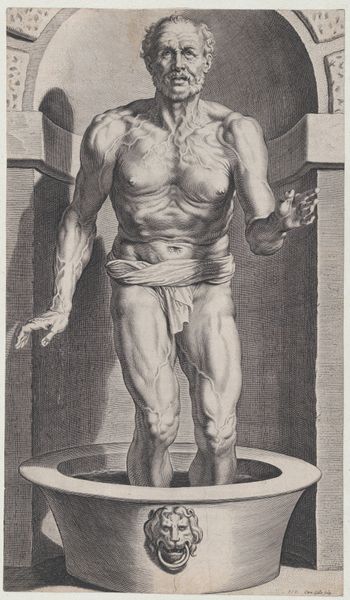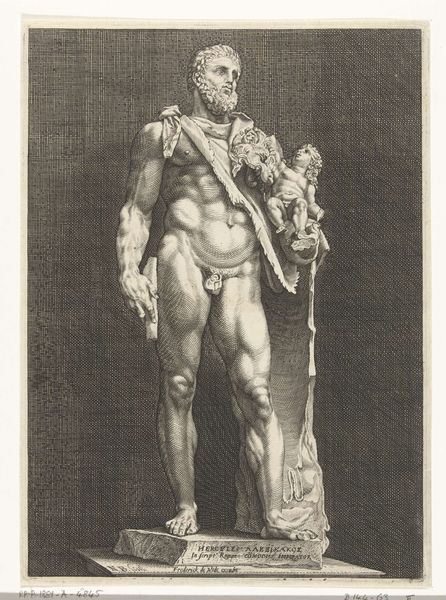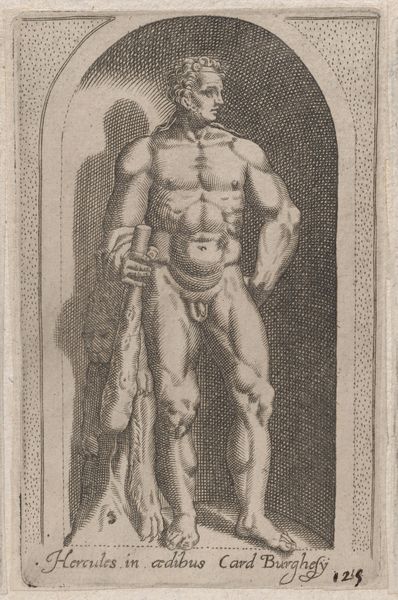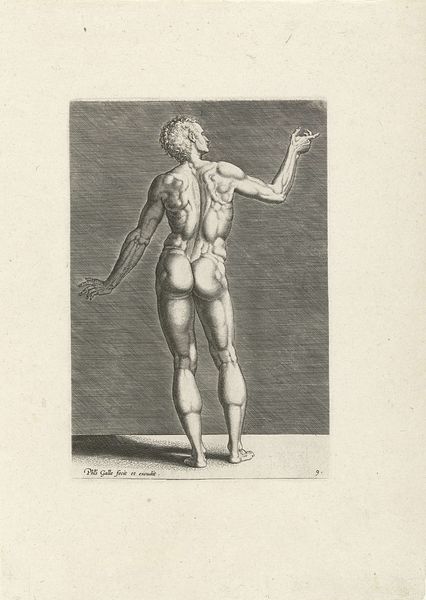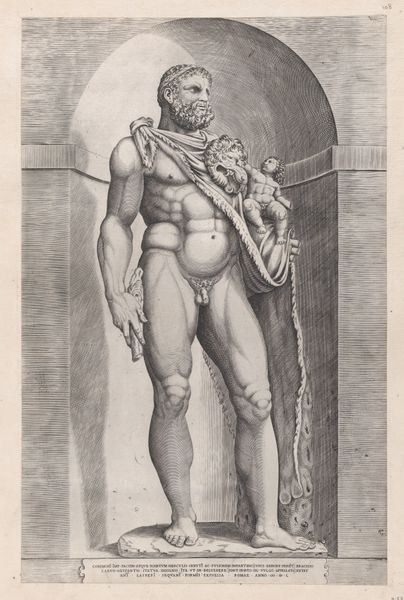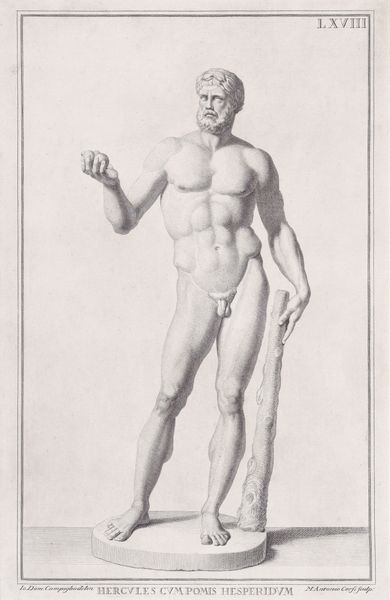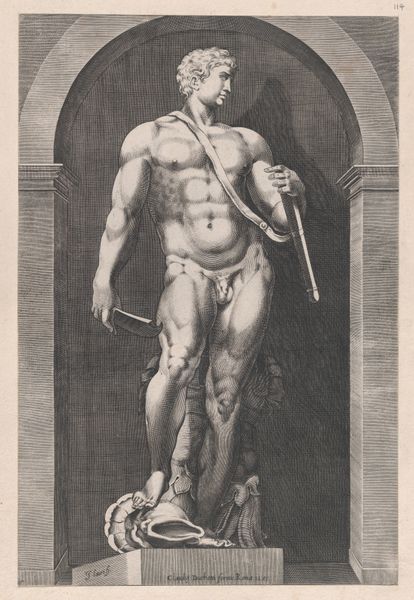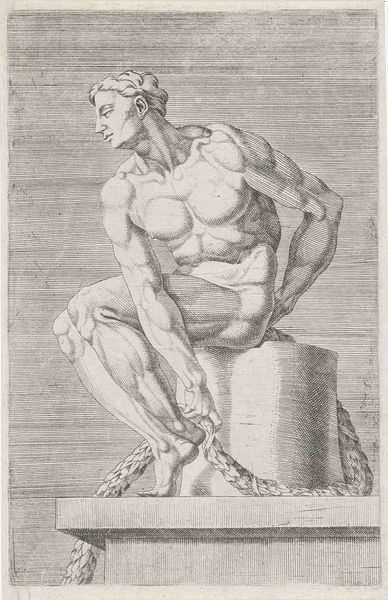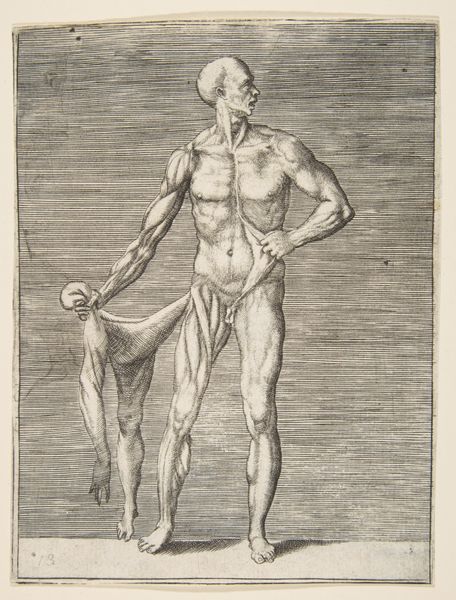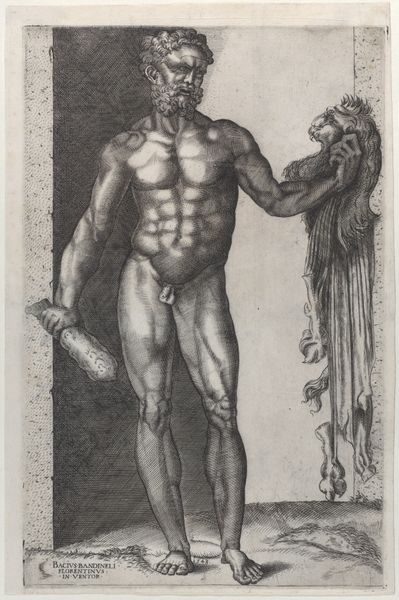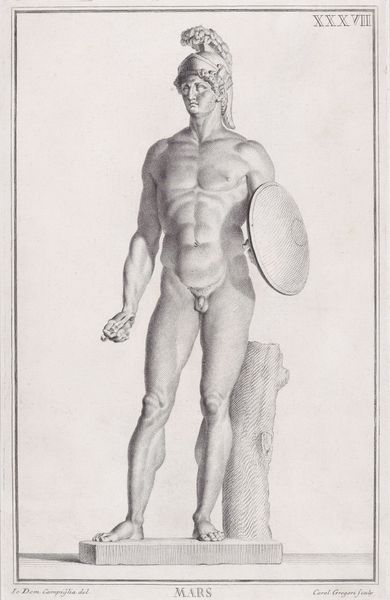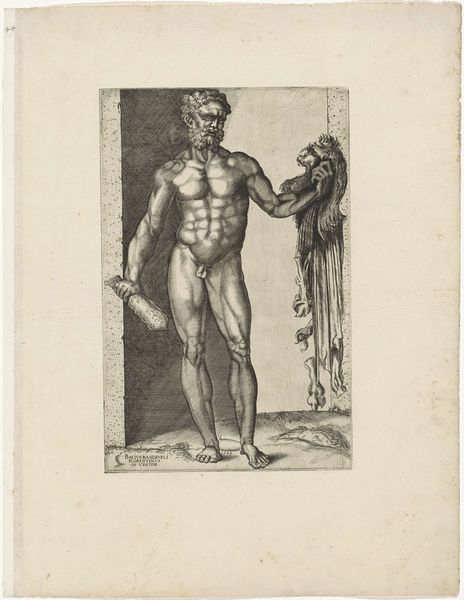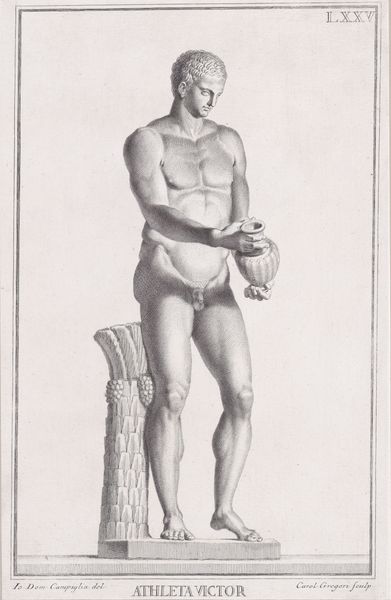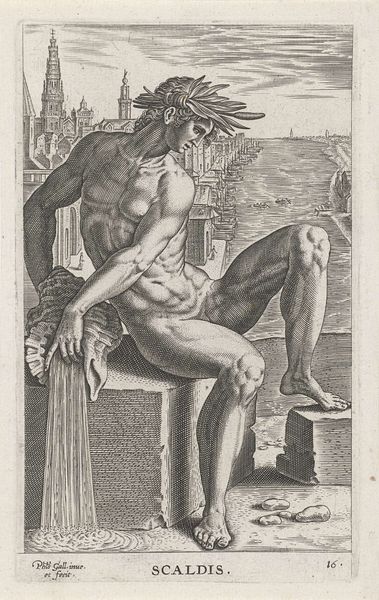
engraving
#
portrait
#
baroque
#
old engraving style
#
figuration
#
history-painting
#
academic-art
#
nude
#
engraving
Dimensions: height 336 mm, width 202 mm
Copyright: Rijks Museum: Open Domain
Curator: This engraving, "Seneca staand, met zijn voeten in bad," dating sometime between 1586 and 1650, presents a commanding figure rendered in meticulous detail by Cornelis Galle I. Editor: The anatomical precision is… striking. The stark presentation of muscle and sinew seems to deliberately push against idealised beauty. Curator: Indeed. The work, a figuration and history painting, displays an engagement with academic art conventions through the dramatic nude and intense focus on form. Note how the veins become almost decorative elements across Seneca's torso and limbs. Editor: That detail, perhaps unintentionally, elevates Seneca's internalised pain for public scrutiny, laying bare vulnerabilities usually concealed by class privilege. The bath, traditionally a symbol of relaxation, transforms into a stage for public sacrifice, reflecting his forced suicide, ordered by Nero. Curator: Precisely. The composition is powerfully structured by stark contrasts—light against shadow, aged flesh against hard stone, contributing to its stoic mood. It emphasizes a restrained aesthetic, evident in the minimal architectural framing. The formal control lends itself to readings based on line, form, and the effective use of chiaroscuro. Editor: However, viewing it solely through formal qualities would deny us its complex socio-political narrative. Seneca, a man who initially sought reconciliation for Nero's tyrannical reign. It reveals tensions of performing complicity within oppressive power systems while, through his philosophical writing, advocating freedom. That contradiction makes this image intensely powerful. Curator: Ultimately, I would argue that the aesthetic arrangement compels an intellectual reckoning, independent of socio-historical specifics. Editor: Yet the social and political dimensions give the composition depth. It speaks to enduring concerns of power and privilege, complicity and resistance. Curator: It appears we share appreciation, just by different means. Editor: A fine image through different lights.
Comments
No comments
Be the first to comment and join the conversation on the ultimate creative platform.
